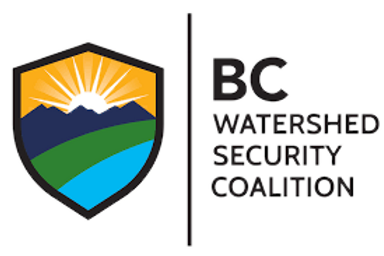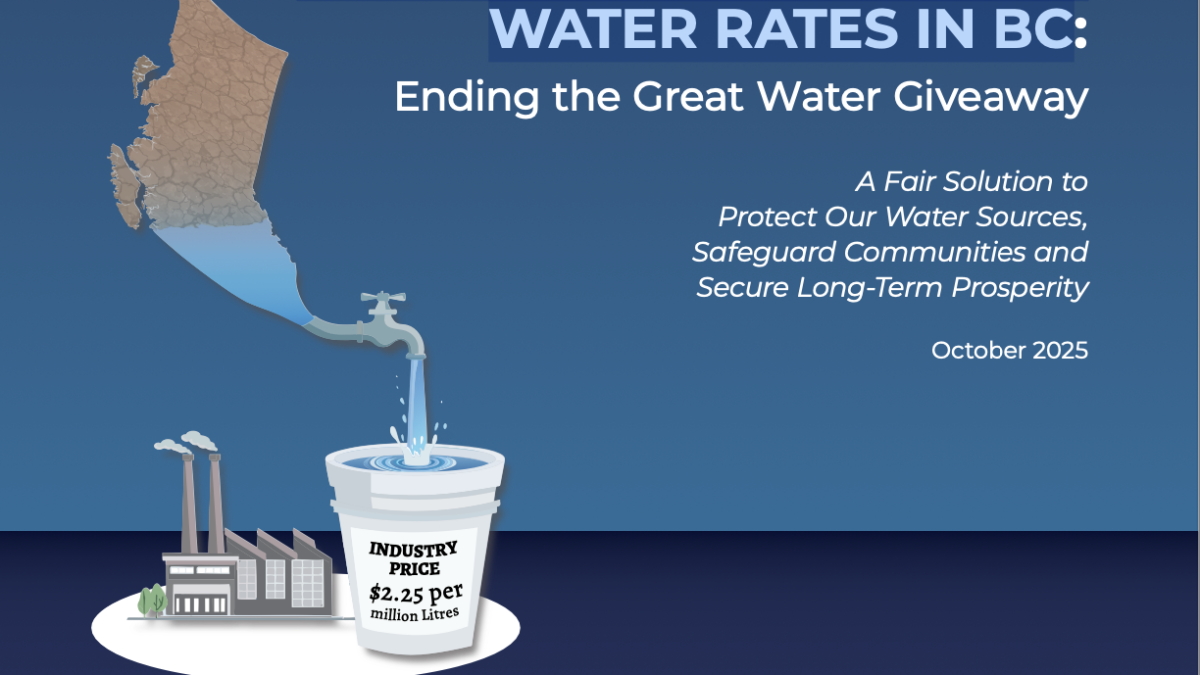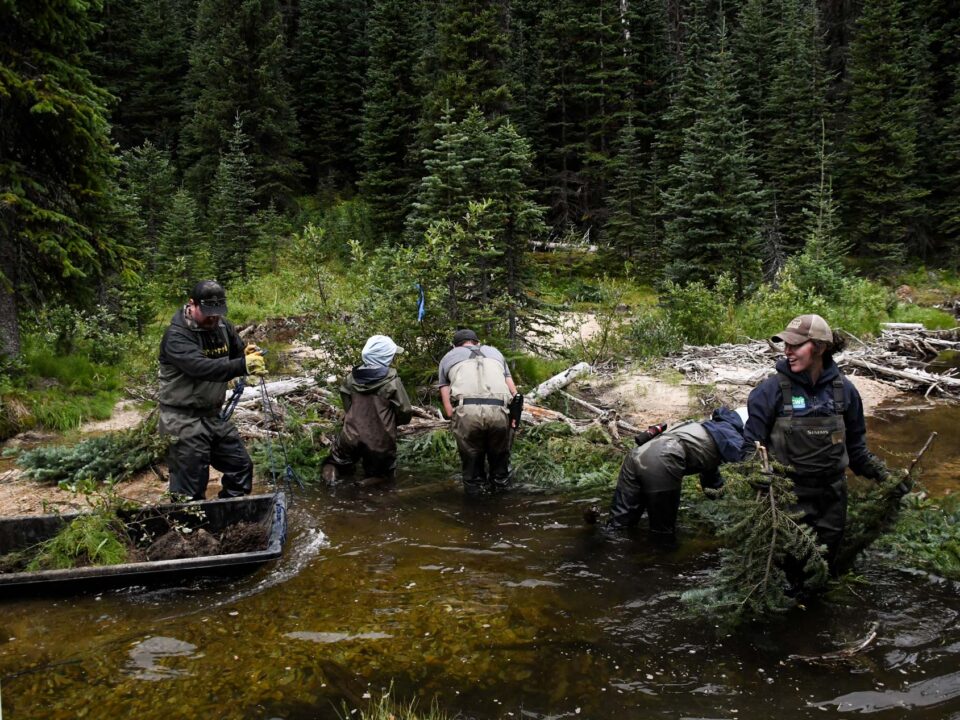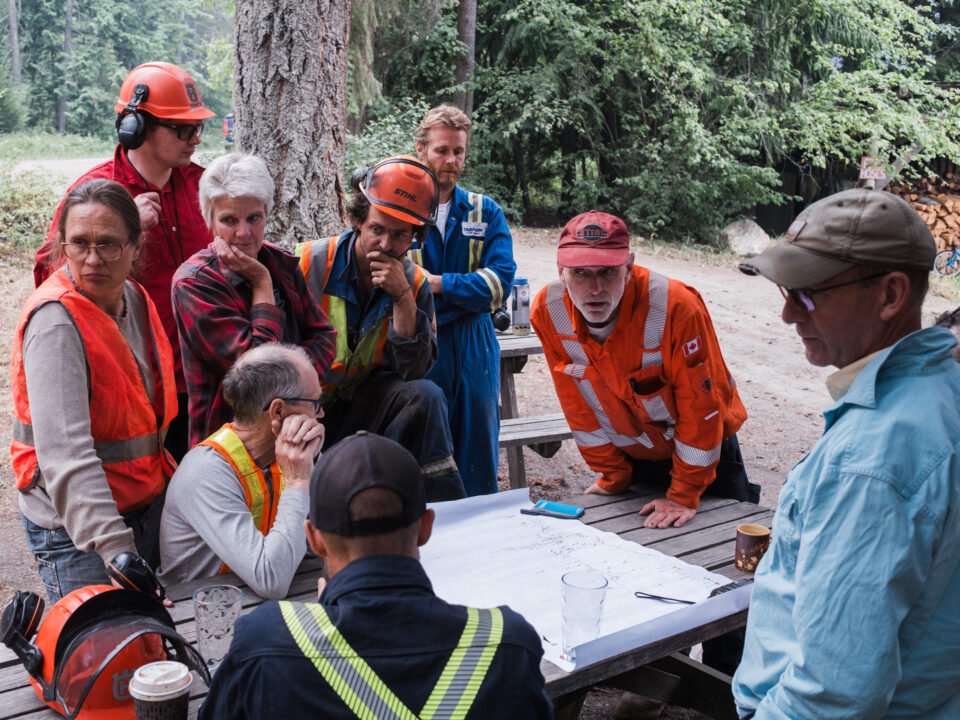
Media Release: Failure to invest in BC’s water security poses economic risks, increased community costs, and missed job opportunities
March 5, 2025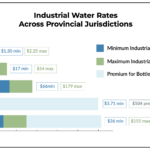
B.C. charges Canada’s lowest industrial water rates, finds report
October 27, 2025BC charges industry $2.25 per million litres; other provinces charge 20-80 times more
October 23, 2025: VANCOUVER/UNCEDED xʷməθkʷəy̓əm (MUSQUEAM), Sḵwx̱wú7mesh (SQUAMISH) AND səlilwətaɬ (TSLEIL-WAUTUTH) TERRITORIES
The BC Watershed Security Coalition has released a new public report, Modernizing Industrial Water Rates in BC: Ending the Great Water Giveaway, revealing how BC is effectively giving water away to some of the world’s largest companies, while local communities are left scrambling to fund basic protections against droughts, floods, and wildfires.
BC charges some of the lowest industrial water rates in the country—the maximum a large industrial water user can pay is $2.25 per million litres. In contrast, other provinces charge between $54 and $179 for high-impact industries. Industrial users in BC, such as mining operations and oil and gas companies, are authorized to draw an estimated 2.6 trillion litres of water each year.
“Water insecurity has become a major risk to BC’s economy and is creating real costs for communities. By taking water for granted, we’re leaving communities and the economy exposed,” said Coree Tull, Chair of the BC Watershed Security Coalition. “When water is undervalued, we underfund the work that keeps British Columbians safe from droughts, floods, and wildfires.”
The report estimates that by modernizing outdated industrial water rates, the Province could generate over $100 million annually, without increasing costs on farmers, residents and small businesses. The report recommends these funds be reinvested in strengthening water management and supporting community-led solutions.
“We need to move beyond 20th-century thinking to meet today’s water challenges. British Columbians expect the government to safeguard our water — not give it away,” said Tim Morris, Project Director of BC Water Legacy and co-author of the report. “Modernizing industrial water rates and reinvesting in stronger water management is fair, practical, and smart economic policy. Those who profit most from water use should contribute their share—and B.C. is lagging behind other provinces in recognizing this.”
In a time of tight budgets, this proposal offers a rare win-win: a fiscally responsible way to strengthen long-term water security without raising taxes or cutting services. It is also a popular solution with recent polling showing that 82 percent of British Columbians support increasing industrial water rates and dedicating revenue to watershed protection and drinking water security.
ADDITIONAL QUOTES
“Local governments and First Nations in the Okanagan are working together to protect our watersheds—but we can’t do it alone. We need stable, long-term support from the province.
Fair industrial water rates would provide the sustainable funding our communities need to plan for the future, create good local jobs in monitoring and restoration, and safeguard our water sources for generations to come. The economic future of the entire Okanagan region depends on having safe, clean water—and a healthy watershed is the only way to ensure that.”
Blair Ireland, Chair of the Regional District of Central Okanagan, Mayor of the District of Lake Country and Chair of the Okanagan Basin Water Board
“Local governments across Vancouver Island are on the frontlines of water insecurity, from drought restrictions to the downstream impacts of forestry and industrial development, but we don’t have the resources we need to get ahead of these challenges. Modernizing BC’s outdated industrial water rates would provide critical funding to protect watersheds, support local resilience, and ensure safe, reliable water for local businesses and residents.”
Vickey Brown, Mayor, Village of Cumberland
“Water is a shared public resource, not an unlimited free good. Every species in British Columbia, from salmon to moose to migratory birds, depends on clean, reliable water. Right now, we’re giving it away and paying the price. Fair water pricing and reinvesting that revenue in watershed restoration is just common sense. It’s how we protect fish, wildlife, and the people who depend on them.”
Jesse Zeman, Executive Director of BC Wildlife Federation
“Farmers know better than anyone that water is the lifeblood of our communities and our economy. When we invest in watershed health, we are investing in the long-term stability of food production, local jobs, and rural resilience. This proposal is a practical way to make sure water is managed for the future.”
Dave Zehnder, Zehnder Ranch and Watershed Security Coalition Steering Member
“Across B.C., we’re seeing local watershed efforts stall just as the need for action grows. Communities want to protect their freshwater, but without stronger provincial investment, we’re losing momentum as trained staff are left without work and critical monitoring and restoration initiatives are scaled back. Unlocking new, sustainable funding by modernizing industrial water rates can restore on-the-ground capacity, create jobs, and strengthen community resilience against worsening droughts and floods.”
Kat Hartwig, Executive Director of Living Lakes Canada
“It is bad enough that the B.C. government is letting multi-billion dollar companies plunder and pollute vast amounts of our water every year with near impunity, but to let them do it for literally pennies is appalling. It’s time to follow the lead of other provinces by charging these giants the true cost of the damage they are doing to our water sources and putting that money into securing the health of our watersheds. “
Aaron Hill, Executive Director of Watershed Watch Salmon Society
-30-
